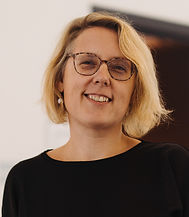
Living with Lower Water Levels
An Ethnography of Fishing Villages Between Kinshasa and Mbandaka
My research project is entitled « «Living with lower water levels of the Congo River : an ethnographe of fishing villages between Kinshasa and Mbandaka in DRC». It seeks to understand how local communities living along the Congo River live and understand climate change. It will focus mainly on the decline of water levels in the Congo River, their consequences on food security, the marketing of fish/other agricultural products and the frequency of commercial vessel movements.
It’s embedded in the C-Urge project, under the supervision of Professors Katrien Pype (KU Leuven) and Giuliano di Baldassarre (Uppsala University). So, I will document (1) the different narratives on climate change produced in the villages, and their effects on local political institutions ; (2) how the inhabitants of fishing communities experience the effects of climate change on their economic activities and (3) the different technological responses that these local communities (fishermen) implement as a result of lower water levels. Finally, I will analyze their representations of climate change and its effects in symbolic village spaces (rituals, songs, architecture, etc).
Doctoral Candidate: Tito Muhindo Kakundika
I’m an anthropologist and sociologist, graduate of the Faculty of Social, Administrative and Political Sciences since 2008 at the University of Kisangani (UNIKIS) in the Democratic Republic of Congo (DRC).
From 2010 to 2012, I was enrolled in a transdisciplinary Master program on biodiversity and forest management (specialty : Man & Forest). My field activities were focused on two forest concessions managed by COTREFOR and CFT in the Province of Tshopo. I evaluated the potential of social clauses of specifications to sustainably regulate relations between forest consectors and local communities.
Between 2013 and 2014, I interned in the project « Boyond timber » and « Beyond wood : Reconciling the needs of the forest industry with those of forest dependent populations » implemented in Cameroon - Gabon - DRC by a consortium : IRAD, IRET, UNIKIS, CIFOR and Biodiversity International. Thus, I contributed to the development of a multi-purpose forest management model applied to forest concessions in Central Africa.
Meet The Team

Tito Muhindo Kakundika
Department of Social and Cultural Anthropology, KU Leuven
Secondment:

Katrien Pype
Department of Social and Cultural Anthropology, KU Leuven

Giuliano di Baldassarre
PhD Candidate
Supervisor
Co-Supervisor
The Commission of the Indian Ocean



